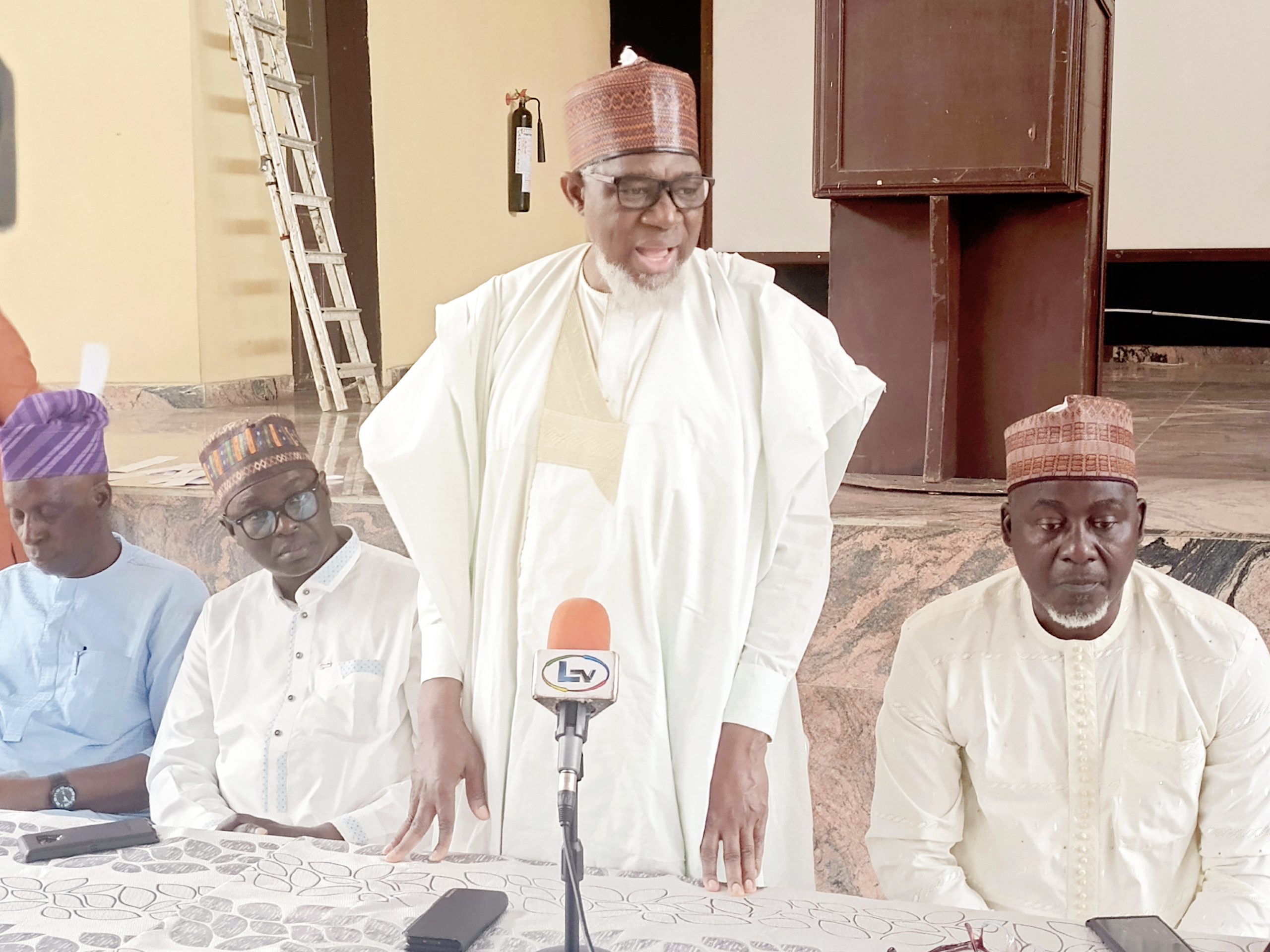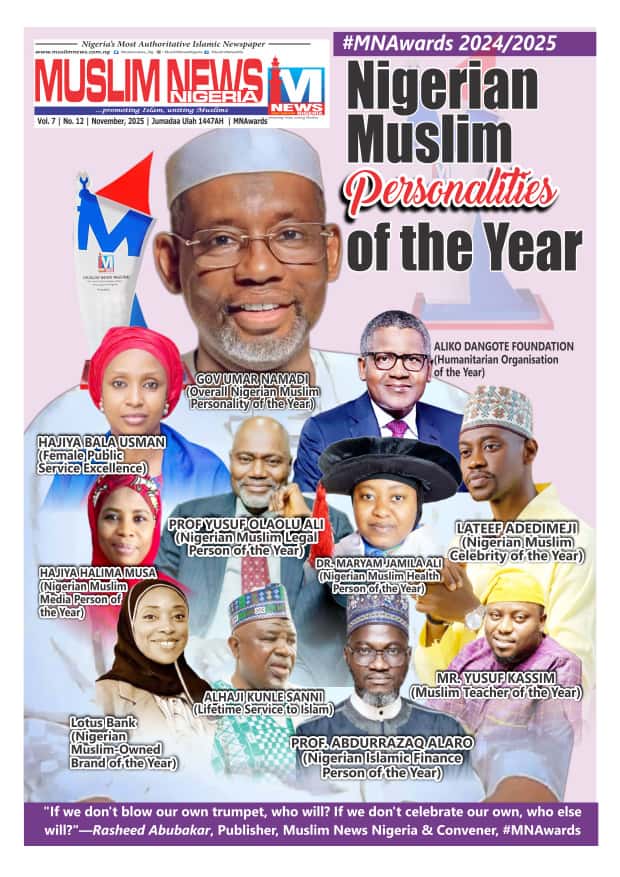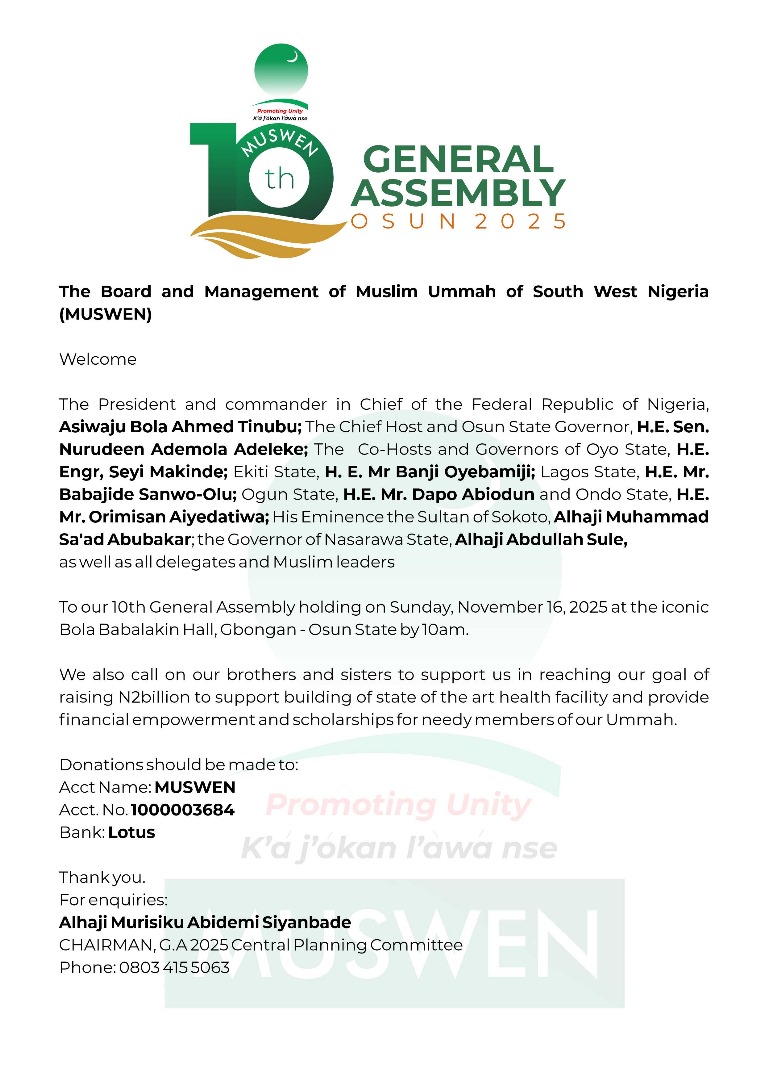The National Missioner of the Ansar-Ud-Deen Society of Nigeria, Sheikh Abdur Rahman Ahmad, has said that Nigeria’s deepening poverty and insecurity stemmed from unjust governance, poor wealth distribution, and an economic system that leaves the poor suffocated and the rich shielded.
He made the remarks on Sunday, September 21, at the Alausa Secretariat Mosque Hall, Ikeja, Lagos, while serving as guest speaker at the annual disbursement ceremony organised by Here and Hereafter Foundation for widows and orphans.
Muslim News gathered that a total sum of N10.8 million was distributed among 26 beneficiaries in 2025, aimed at funding the education of orphans and empowering widows.
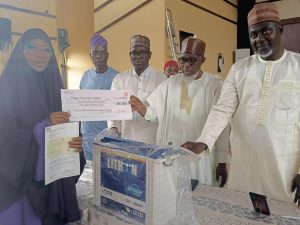
Data released by the Foundation showed that N9.64 million was spent on scholarships for orphans while N1.24 million was disbursed on business empowerment.
Sheikh Ahmad expressed heartfelt gratitude to the donors for their continued support of orphans and widows, assuring them that their contributions were being directed to the intended causes.
Turning to the beneficiaries of the foundation’s programme, especially students, the respected Muslim scholar stressed the importance of academic diligence as a condition for continued support. “It is their performance that will justify our continuous support for them. If anybody falls below 2.2, we cannot continue to waste resources entrusted to us,” he warned.
Consequence of hunger, insecurity
While addressing the current situation in the country, the National Missioner of Ansar-Ud-Deen Society of Nigeria drew from Suratul Quraysh (Qur’an 106) to highlight the consequences of disobedience and injustice, noting that Allah’s promise of safety and prosperity is contingent on faithfulness.
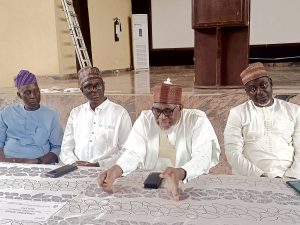
Alhaji AbdulHameed Olona, Sheikh Abdurrahman Ahmad and Alhaji Abdurrasaq Asaju
“Whenever we have widespread hunger and insecurity, we should examine our faith, our convictions, and the way we relate with the laws of Allah,” he said. “The consequence of disobedience is what we are witnessing today — an inappropriate economic system based on deprivation and riba, where the poor get poorer, and the rich grow richer.”
According to him, Nigeria’s abundant resources have not translated into the welfare of the people because the system fails to guarantee a rightful share for the poor in the wealth of the rich.
“This is why, with so much money and resources, we are still suffering from hunger and insecurity,” he explained. “Criminals seem to be more powerful than the government because we have neglected justice in distribution.”
Preaches fairness, equitable access to opportunities
Sheikh Ahmad stressed that security cannot be achieved merely by “buying more arms and ammunition,” but by ensuring fairness in governance and equitable access to opportunities. “The government must ensure that the system is not choking to the poor and not overprotecting the rich,” he stated. “Palliatives are only for the short term, but people’s honour and dignity must be factored into government programmes.”
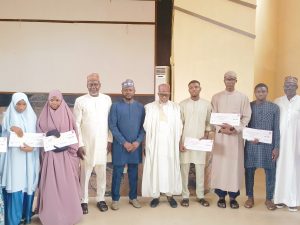
He further urged authorities to prioritise employment opportunities, fair appointments, and merit-based selections rather than nepotism. “If the son of nobody can become what he wants to become in this country, then we can start to address the real issues,” he said.
While challenging the masses not to resort to lawlessness or dishonesty, Sheikh Ahmad encouraged them to hold their leaders accountable. “The poor must remain hardworking, vigilant, obedient, and they should call elected representatives to account. They must demand what is due to them in a beautiful way,” he urged.

